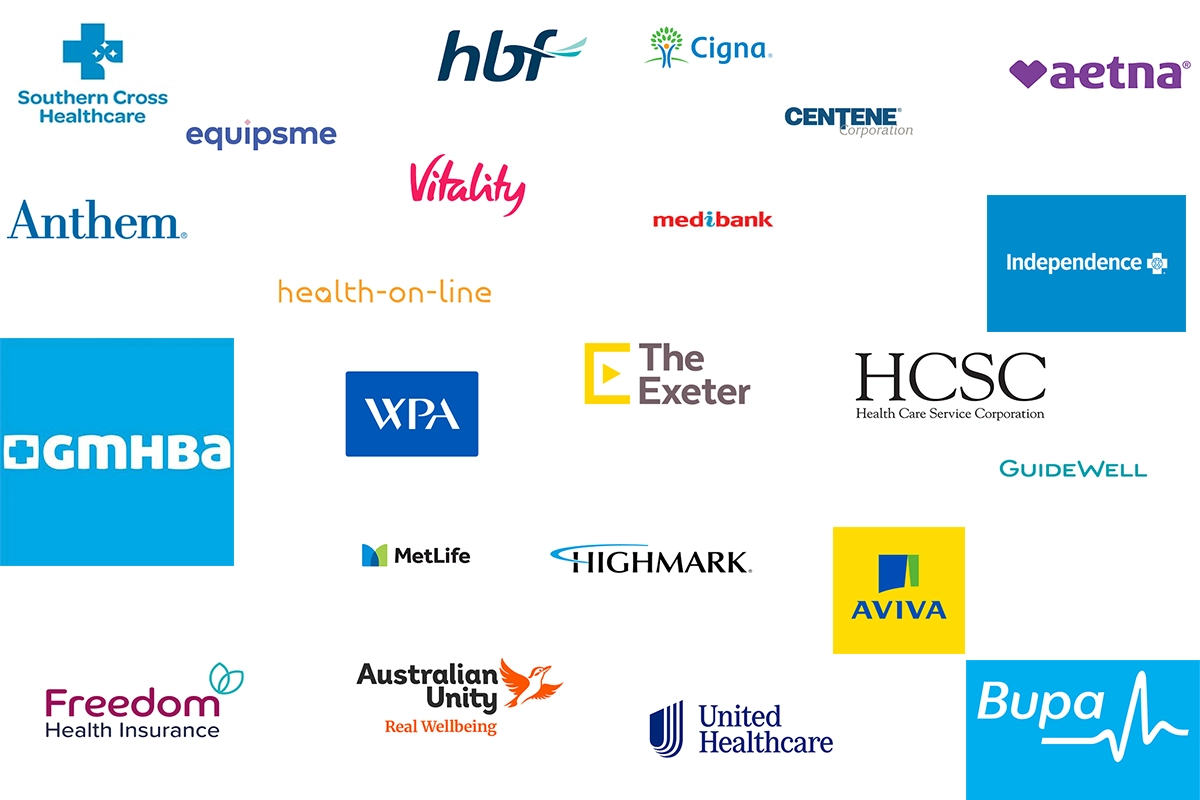
Do I need private health insurance in Australia? This is a question many Australians grapple with, especially given the complexities of our healthcare system. Australia boasts a universal healthcare system through Medicare, providing essential medical services to all citizens and permanent residents. However, Medicare alone may not cover all your healthcare needs, leading many to consider the benefits of private health insurance.
Navigating the Australian healthcare landscape can be overwhelming, with Medicare, private health insurance, and alternative options available. Understanding the intricacies of each option is crucial for making informed decisions about your healthcare coverage. This guide aims to provide a comprehensive overview of private health insurance in Australia, helping you determine whether it’s the right choice for your individual circumstances.
Understanding Australian Healthcare System
Australia has a universal healthcare system, meaning that everyone living in the country has access to essential medical care. The cornerstone of this system is Medicare, a publicly funded health insurance scheme that provides access to a wide range of medical services.
Medicare’s Role in Australian Healthcare
Medicare plays a crucial role in providing affordable healthcare to all Australians. It is a government-funded program that covers essential medical services, such as consultations with doctors, hospital stays, and some essential medications. Medicare is funded through taxes, ensuring that everyone contributes to the system.
Medicare Coverage Benefits and Limitations
Medicare offers a wide range of benefits, but it also has certain limitations.
Medicare Benefits
- Doctor’s consultations: Medicare covers the cost of consultations with general practitioners (GPs) and specialists, although there may be a co-payment or gap fee.
- Hospital services: Medicare covers the cost of hospital stays, including surgery, treatments, and medications, although there may be a co-payment or gap fee.
- Diagnostic tests: Medicare covers the cost of essential diagnostic tests, such as X-rays, blood tests, and scans.
- Some medications: Medicare covers the cost of some essential medications, although there may be a co-payment or gap fee.
Medicare does not cover all medical expenses. There are certain services that are not covered by Medicare, such as:
- Dental care: Medicare does not cover most dental services, although there are some exceptions for children and certain procedures.
- Physiotherapy and other allied health services: Medicare covers a limited number of sessions with physiotherapists, chiropractors, and other allied health professionals.
- Private health insurance: Medicare does not cover the cost of private health insurance, which provides additional coverage for services not covered by Medicare.
Common Medical Services Covered by Medicare
Medicare covers a wide range of common medical services, including:
- GP consultations: This includes consultations with general practitioners for routine check-ups, treatment of illnesses, and management of chronic conditions.
- Specialist consultations: This includes consultations with specialists, such as cardiologists, oncologists, and dermatologists, for diagnosis and treatment of specific medical conditions.
- Hospital services: This includes inpatient and outpatient services, such as surgery, chemotherapy, and rehabilitation.
- Diagnostic tests: This includes a wide range of tests, such as blood tests, X-rays, scans, and biopsies, used to diagnose and monitor medical conditions.
- Some medications: This includes a range of essential medications, such as antibiotics, painkillers, and medications for chronic conditions.
Private Health Insurance in Australia
Private health insurance offers additional coverage beyond the public Medicare system, providing Australians with a wider range of healthcare options and potential benefits.
Advantages of Private Health Insurance
Having private health insurance in Australia comes with several advantages that can enhance your healthcare experience. Here are some of the key benefits:
- Faster Access to Treatment: Private health insurance can grant you quicker access to specialists, surgeries, and other medical procedures compared to waiting times within the public system. This is particularly valuable for non-urgent but necessary treatments where time is of the essence.
- Choice of Specialists and Hospitals: Private health insurance allows you to choose your preferred specialists and hospitals, ensuring you receive care from healthcare professionals you trust. This can be crucial for specific medical needs or preferences.
- Private Hospital Accommodation: Private health insurance often covers private hospital accommodation, providing a more comfortable and personalized environment during your stay. This can be beneficial for recovery and overall well-being.
- Dental and Optical Coverage: Many private health insurance policies include coverage for dental and optical care, which are not fully covered by Medicare. This can help manage the costs associated with these essential services.
- Medicare Levy Surcharge: If your income exceeds a certain threshold and you do not have private health insurance, you may be liable for the Medicare Levy Surcharge. Having private health insurance can help avoid this additional financial burden.
Types of Private Health Insurance Policies
Private health insurance policies in Australia come in various forms, catering to different needs and budgets. Here are some common types:
- Hospital Cover: This type of policy covers your hospital costs, including accommodation, surgeries, and other medical procedures performed in a private hospital. It does not usually cover outpatient services.
- Extras Cover: This policy covers a range of healthcare services beyond hospital care, such as dental, optical, physiotherapy, and alternative therapies. It can be purchased separately or combined with hospital cover.
- Combined Cover: This policy combines both hospital and extras cover, offering comprehensive protection for a wider range of healthcare needs.
Cost and Benefits of Private Health Insurance Plans
The cost of private health insurance in Australia varies significantly depending on factors such as your age, location, chosen policy type, and level of coverage.
- Factors Influencing Cost: Age, location, chosen policy type, and level of coverage are key factors that determine the cost of private health insurance. Younger individuals generally pay lower premiums than older individuals, while policies with higher levels of coverage tend to be more expensive.
- Benefits of Different Plans: The benefits offered by private health insurance plans vary widely. Some plans may offer more extensive coverage for specific services, such as dental or optical care, while others may have lower premiums but provide less comprehensive coverage.
- Comparing Plans: It is crucial to compare different private health insurance plans before making a decision. Consider your individual healthcare needs, budget, and priorities when assessing the costs and benefits of various options. Online comparison tools can be helpful in this process.
Factors to Consider When Choosing Private Health Insurance: Do I Need Private Health Insurance In Australia
Choosing private health insurance in Australia is a significant decision that requires careful consideration. Several factors influence your choice, from your individual needs and circumstances to the available options and costs. This section delves into the key factors you should consider before making a decision.
Factors Influencing Premium Costs
Understanding the factors that influence premium costs is crucial for making an informed decision about private health insurance. These factors can significantly impact the price you pay for your coverage.
- Age: Generally, younger individuals pay lower premiums compared to older individuals. This is because younger people tend to have fewer health issues and require less healthcare. As you age, the likelihood of needing healthcare services increases, leading to higher premiums.
- Health Status: Pre-existing medical conditions can influence your premium costs. Individuals with pre-existing conditions may face higher premiums as insurers assess the potential risk of covering their healthcare expenses. However, it’s important to note that insurers cannot discriminate based on your health status, and they are required to provide coverage to all applicants.
- Lifestyle: Your lifestyle choices can also affect your premium costs. For instance, individuals who engage in risky activities like smoking or excessive alcohol consumption may face higher premiums. This is because these behaviors can increase the likelihood of health problems, potentially leading to higher healthcare expenses.
Comparing Private Health Insurance Providers, Do i need private health insurance in australia
Comparing different private health insurance providers is essential to finding the best value for your money. Key features to consider include:
| Feature | Provider A | Provider B | Provider C |
|---|---|---|---|
| Coverage Levels | Basic, Gold, Platinum | Silver, Gold, Platinum | Bronze, Silver, Gold |
| Hospital Cover | Public and Private Hospitals | Private Hospitals Only | Public and Private Hospitals |
| Extras Cover | Dental, Physiotherapy, Optical | Dental, Physiotherapy | Dental, Optical |
| Premium Costs | $150-$300 per month | $200-$400 per month | $100-$250 per month |
| Waiting Periods | 2 months for most benefits | 1 month for most benefits | 3 months for most benefits |
Assessing Your Need for Private Health Insurance

Deciding whether or not you need private health insurance in Australia requires a thoughtful evaluation of your individual circumstances and healthcare priorities. While Medicare provides essential healthcare coverage, private health insurance can offer additional benefits and flexibility.
Factors Influencing Your Decision
This section explores various factors to consider when assessing your need for private health insurance.
- Your Health Status: If you have pre-existing health conditions or are at a higher risk of requiring specialized medical care, private health insurance can provide peace of mind and access to faster treatment. For example, if you have a family history of heart disease or diabetes, private health insurance can help you access specialized care and procedures more readily.
- Your Age and Family Circumstances: As you age, the likelihood of needing healthcare services increases. Private health insurance can help you manage healthcare costs associated with aging, such as long-term care or rehabilitation. If you have a young family, private health insurance can provide coverage for children’s dental and optical care, which is not fully covered by Medicare.
- Your Income and Financial Situation: Private health insurance premiums can be a significant expense, and it’s essential to assess your financial capacity to afford them.
- Your Healthcare Preferences: Private health insurance allows you to choose your healthcare provider and access services like private hospitals and specialists.
- Your Willingness to Wait for Public Healthcare: Waiting times for elective surgery and other non-urgent procedures can be lengthy under Medicare. If you prefer faster access to these services, private health insurance can be beneficial.
Benefits and Drawbacks of Private Health Insurance
This section delves into the advantages and disadvantages of private health insurance.
- Benefits:
- Faster Access to Healthcare: Private health insurance allows you to access private hospitals and specialists, often with shorter waiting times for elective surgery and other procedures.
- Choice of Healthcare Provider: You have more flexibility in choosing your doctor and hospital.
- Coverage for Additional Services: Private health insurance covers a wider range of services, including dental, optical, and physiotherapy, which are not fully covered by Medicare.
- Potential Tax Benefits: You may be eligible for a tax rebate on your private health insurance premiums, depending on your income.
- Drawbacks:
- Cost: Private health insurance premiums can be expensive, especially for comprehensive cover.
- Limited Coverage: Private health insurance policies may have exclusions or limitations, so it’s essential to carefully review the policy details.
- Potential Waiting Periods: Some policies have waiting periods before certain benefits become available.
Decision-Making Flowchart
This flowchart illustrates the decision-making process for choosing private health insurance.
Start
Do you have pre-existing health conditions or are you at a higher risk of needing specialized medical care?
Yes: Consider private health insurance.
No: Proceed to the next step.
Are you comfortable waiting for public healthcare services?
Yes: You may not need private health insurance.
No: Consider private health insurance.
Can you afford the premiums for private health insurance?
Yes: Consider private health insurance.
No: You may not need private health insurance.
End
Alternative Healthcare Options

While private health insurance offers comprehensive coverage, it might not be the most suitable option for everyone. Australia provides a range of alternative healthcare options that cater to different needs and budgets. These options can be more affordable than private health insurance, offering a balance between cost and coverage.
Government Subsidies and Rebates
Government subsidies and rebates are available for specific healthcare services, helping to reduce out-of-pocket expenses. These include:
- Medicare Benefits Schedule (MBS): This schedule Artikels the fees the government will reimburse for specific medical services. Doctors and other healthcare providers can charge a higher fee than the MBS amount, but patients are only reimbursed the MBS amount.
- Pharmaceutical Benefits Scheme (PBS): This scheme provides subsidized access to a wide range of prescription medications. Patients pay a co-payment for PBS-listed medications, with the government covering the remaining cost.
- Medicare Safety Net: This program provides additional financial assistance to individuals and families who incur significant out-of-pocket healthcare expenses.
Out-of-Pocket Expenses
Out-of-pocket expenses are the costs you pay directly for healthcare services, such as:
- Gap fees: These are the differences between the doctor’s fees and the MBS amount.
- Non-Medicare services: Some services, such as cosmetic surgery, are not covered by Medicare and require full out-of-pocket payment.
- Private health insurance premiums: These are the monthly or annual fees you pay for private health insurance.
Comparing Alternatives to Private Health Insurance
| Option | Cost | Benefits | Drawbacks |
|---|---|---|---|
| Medicare | Free at the point of service | Covers essential healthcare services, including hospital stays, doctor visits, and some medications | Limited coverage for non-essential services, potential for long waiting times, out-of-pocket expenses for gap fees |
| Government Subsidies and Rebates | Variable, depending on the service and eligibility | Reduced out-of-pocket expenses for eligible services | Not all services are subsidized, eligibility criteria may apply |
| Out-of-Pocket Expenses | Variable, depending on the service and provider | Flexibility in choosing healthcare providers, access to services not covered by Medicare | Potentially high costs, no financial protection against unexpected medical expenses |
Final Summary

In conclusion, deciding whether or not to purchase private health insurance in Australia is a personal decision based on individual needs and financial circumstances. While Medicare provides a strong foundation for essential healthcare, private health insurance can offer additional benefits, such as shorter wait times for elective procedures and access to private hospitals. By carefully weighing the advantages and disadvantages, you can make an informed choice that best suits your healthcare requirements and budget.
Top FAQs
What is the difference between Medicare and private health insurance?
Medicare is Australia’s universal healthcare system, providing essential medical services to all citizens and permanent residents. Private health insurance provides additional coverage for services not covered by Medicare, such as private hospital stays and some dental and optical care.
Can I access Medicare if I have private health insurance?
Yes, you can still access Medicare even if you have private health insurance. Medicare acts as a safety net, covering essential services even if your private health insurance doesn’t cover them.
What are the penalties for not having private health insurance?
There are no penalties for not having private health insurance in Australia. However, if you are over 30 years old and don’t have private health insurance, you may have to pay a higher Medicare Levy surcharge on your tax return.
How do I choose the right private health insurance policy?
The best private health insurance policy for you depends on your individual needs and circumstances. Consider factors like your age, health status, lifestyle, and budget when choosing a policy. It’s also advisable to compare different providers and policies to find the best value for your money.





